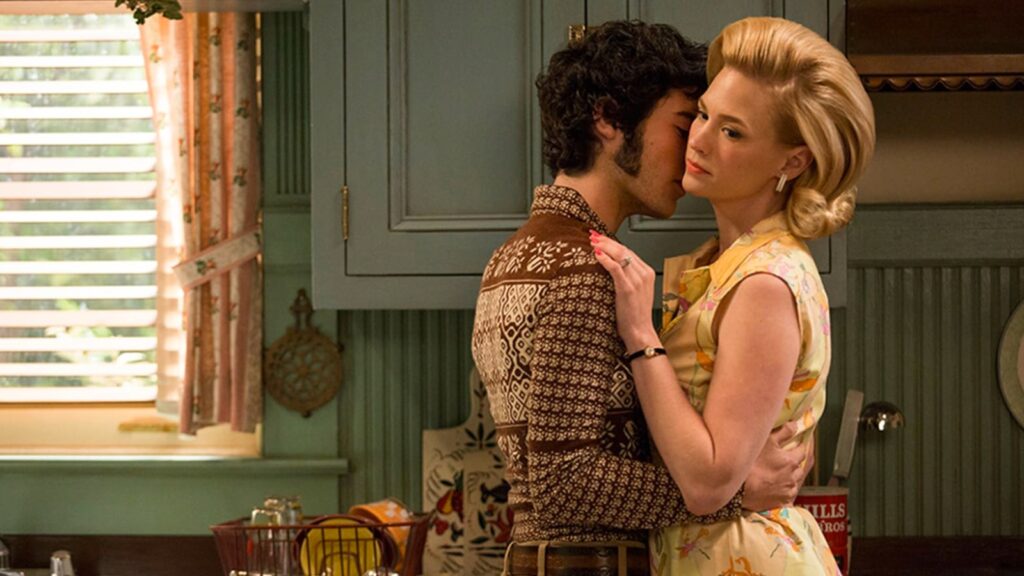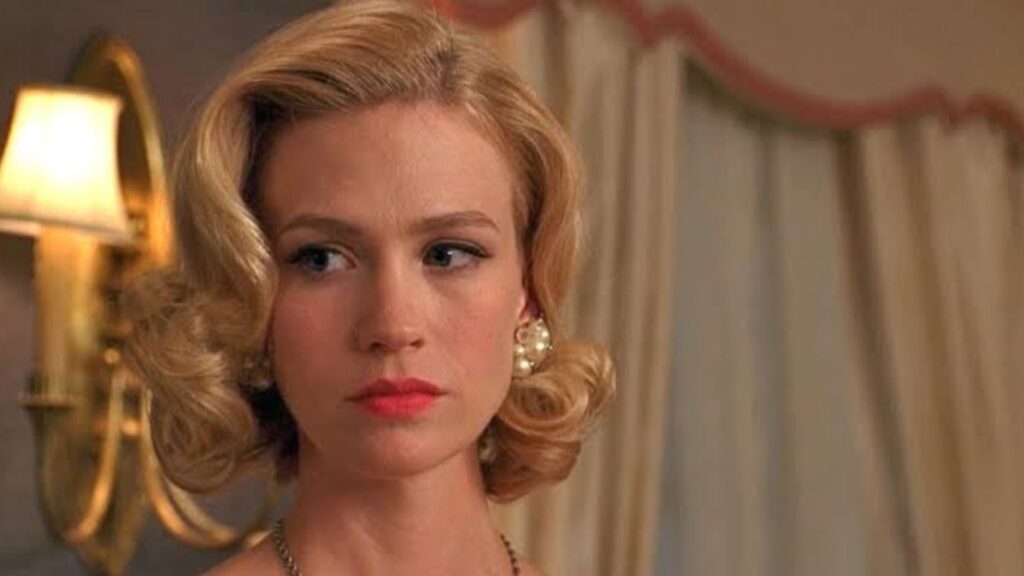In the glamorous, cigarette-stained world of ‘Mad Men’, most characters are given room to grow, evolve, and reveal their depth. Don Draper, Peggy Olson, Joan Harris, and even Roger Sterling all become multi-dimensional, nuanced individuals who are given several opportunities to redeem themselves.
However, amid all this, Betty Draper, portrayed by January Jones, remains an individual who is not given much room to feel. Instead of being given the grace to explore her emotions, she was reduced to a villainous and erratic character.
Don Draper: The Real Villain In Betty’s Story

At the heart of Betty’s despair was her husband, Don Draper, portrayed by Jon Hamm. Don, with his string of affairs, criminal past, and constant emotional unavailability, was the true villain of their marriage. However, as a male antihero, Don’s complexity was constantly mined by the series.
The show made its best efforts to make the audience understand why Don was the way he was. Additionally, they did a splendid job of exploring his past traumas and experiences. In contrast, Betty was never allowed that depth. Despite enduring a marriage to a man who emotionally starved her, leaving her trapped in her suburban prison, she was portrayed as jealous, whiny, and unsympathetic.
Betty was a woman bound by societal expectations. In addition, she was depressed, and anxious and knew that the world only valued her beauty and her role as a housewife. However, ‘Mad Men‘ never gave Betty the narrative space she deserved to explore her own complex identity.
Moreover, she was often reduced to a reflection of the men in her life, primarily Don. One such example is Betty’s relationship with her mother. In some instances, she opened up about her mother. However, very briefly. Whereas, Don’s past was built up for a whole seven seasons the show ran.
In ‘Mad Men’s first season, Betty’s emotional struggles come to the forefront in Episode 13, ‘The Wheel.’ During her therapy session, she acknowledges for the first time that she knows about Don’s infidelity. This moment could have marked a significant turning point for her character. Instead, it becomes just another plot point, another reaction to Don’s behavior.
Betty’s Uncomfortable Relationship With Glen Bishop

One of the strangest and most troubling subplots in ‘Mad Men’ involves Betty’s odd, twisted “romance“ with her neighbor’s son, Glen Bishop. Glen, despite being a teenager, seems to understand Betty’s isolation in a way that no adult does. However, the dynamic never fully works.
Related: 10 Actors Who Hated Their Characters Being Killed Off On TV Shows
It ultimately infantilizes Betty, portraying her as an emotionally immature woman who finds solace in a child. The show never gives us a chance to look into her psyche. Additionally, the relationship only becomes more uncomfortable as Glen grows older.
In the show’s final season, Glen prepares to ship off to Vietnam, and his relationship with Betty seems to flirt with inappropriate tension. While Betty isn’t actively seducing him, there’s an undeniable awkwardness in the way Glen’s feelings for Betty and Sally Draper are handled.
Additionally, rather than adding depth to Betty’s character, the relationship with Glen becomes an uncomfortable, unnecessary storyline that detracts from her humanity. Moreover, it only makes us hate Betty even more despite the hardships the character has been through.
Betty Draper: The Unfairly Hated Character

Despite Don’s deeply flawed character, Betty is consistently seen as the “bad guy” in their relationship. Fans of the show thought of her as a cold, distant, and difficult character. In addition, a bad and abusive mother. Whereas, Don was given the benefit of complexity and emotional depth.
Related: 8 TV Shows Based On Real-Life Scandals
Betty was frequently sidelined, given less compelling storylines like her brief foray into a bizarre relationship with Glen. In addition, the show humiliated the character in a way no other character was portrayed, like The decision to put her in a fatsuit as she struggled with weight gain.
Moreover, other characters, such as Joan and Peggy, were celebrated for their journeys of self-discovery and empowerment. However, Betty was never afforded the same opportunity.
Additionally, her narrative was continually shaped by how others perceived her, especially Don. As viewers, we were encouraged to root for Don’s redemption, even when his actions caused real harm to Betty and their children.
A Devastating End To A Tragic Character

Betty’s final storyline may be the cruelest blow of all. After years of emotional neglect, therapy sessions that went nowhere, and relationships that failed to bring her fulfillment, Betty is diagnosed with terminal lung cancer in the show’s final season. Sadly enough, her Death becomes another plot point, another marker of tragedy in Don Draper’s chaotic life.
In case you missed it: Top 10 TV Show Moments That Made Us Cringe
In a letter to her daughter Sally, Betty instructs her to take care of the house, the funeral arrangements, and her brothers. She faces her fate with a quiet dignity. However, the series still does not allow her character to have any meaningful emotional closure. Betty Draper dies as she lived: misunderstood and largely overlooked.





